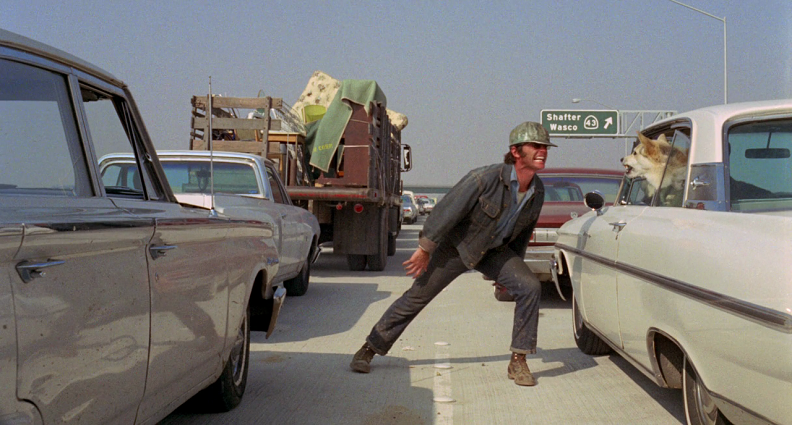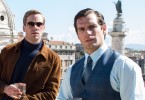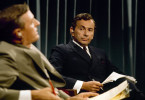Five Easy Pieces
Director: Bob Rafelson
Spine #546
(Blu-ray/DVD)
Jack Nicholson is one of the great American actors. He has awarded us countless iconic performances, most of which are deserving in their recognition. He is the type of performer so powerful in his use of subtlety that he can command the screen with just a menacing smirk. A turning point in Nicholson’s career, Five Easy Pieces is often regarded as the film that catapulted him out of minor roles and into leading-man status.
Ben Rafelson’s film tells the story of Bobby Dupea (Nicholson), a Los Angeles oil rig worker who wears a generally displeased disposition, typically in response to his girlfriend Rayette (Karen Black). Rayette is far more dull-witted and in love with him than he can tolerate, so the two bicker endlessly, but eventually make up. (If you ever wanted to learn how to express pure annoyance just through your eyes, study Nicholson in this film; he gives a masterclass.) After discovering his father is very sick, Bobby decides to check in with his family in upstate California with Rayette in tow, and upon their arrival, he faces a life he had chosen to forget.
Released in 1970, Five Easy Pieces was a part of the pivotal shift from Classical to New Hollywood films. Suddenly, directors were given sole creative control over the filmmaking process, as the style of realism became the dominant cinematic genre and counterculture ideals slipped into the mainstream. Like other landmark films of the movement — Bonnie and Clyde, Easy Rider — Five Easy Pieces can be considered a catalyst that ushered in a new form of filmmaking and paved the way for modern movies. It would be hard to imagine the independent film scene we know today emerging without it laying the foundation.
Finding a perfect balance between unobtrusive camera work, minimal scoring, and a meaty portion of gripping, character-driven drama, Five Easy Pieces stands out as a masterpiece of barebones American realism. Moreover, coupled with its important role in making the career of Jack Nicholson and influencing the future of cinema, it transcends being just a great film; it’s historic. That’s surely enough to satisfy those tough bastards over at The Criterion.





